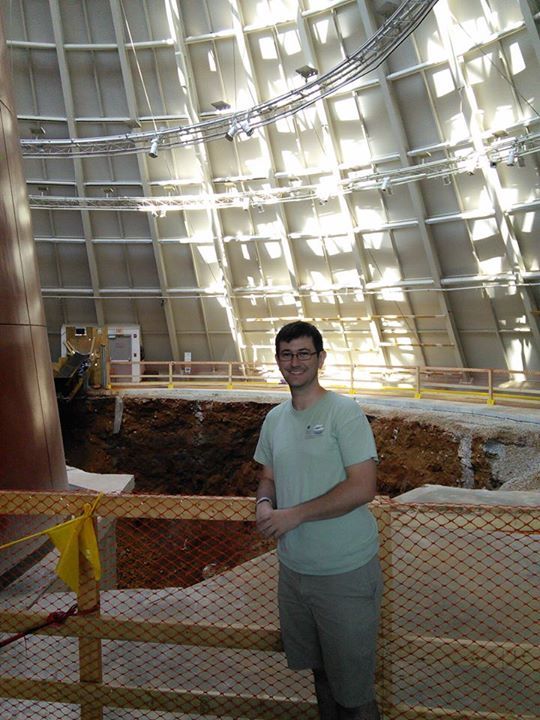John Wall
North Carolina State University
U.S.A.
 John Wall was born in Anderson, South Carolina, where he grew up and graduated from high school in 2005. While in high school, John visited and spent the night in Lost Sea Caverns, Sweetwater, Tennessee on a Boy Scout camping trip. During this trip, John was exposed to the various ways in which humans utilize karst terrain including shelter and resources such as saltpeter extraction and cheese making.
John Wall was born in Anderson, South Carolina, where he grew up and graduated from high school in 2005. While in high school, John visited and spent the night in Lost Sea Caverns, Sweetwater, Tennessee on a Boy Scout camping trip. During this trip, John was exposed to the various ways in which humans utilize karst terrain including shelter and resources such as saltpeter extraction and cheese making.
After high school, John enrolled at the College of Charleston in Charleston, South Carolina. Although his undergraduate studies focused on anthropology and archaeology, he was again exposed to human interaction with karst terrain while researching Homo neanderthalensis and Homo sapien burials and cave paintings in Dordogne, France. Furthermore, John learned even more about the dynamic relationship between humans and karst landscapes during a field course that included an investigation of Minoan interactions with the Psychro and Dikteon cave systems in Crete.
John graduated cum laude from the College of Charleston in December 2009 with a Bachelor of Science in Anthropology. Following graduation, he remained in Charleston as a non-matriculating Master of Environmental Science student for a semester to take geoinformatics courses and work as a research assistant. After completing these courses and his assistantship, he took a gap year and moved to Oxford, England. During this year, he took a course in Light Detection and Ranging (LiDAR) data processing for archaeological prospection.
Upon returning to the United States, John enrolled in the Master of Geospatial Information Science & Technology program at North Carolina State University in Raleigh, North Carolina. Due to his experience with and interest in LiDAR data, he began working on a project at Mammoth Cave National Park, which involved LiDAR data processing for a variety of applications including karst terrain analysis, cultural resource management, and fire science management. This work led to a presentation and several discussions on LiDAR applications in karst terrain with Dr. DelWayne Bohnenstiehl, Associate Professor of Earth Science, and Dr. Karl Wegmann, Assistant Professor of Earth Science, at North Carolina State University. He graduated from the master’s program in spring 2013. In fall of 2013 John enrolled as a Ph.D. student again at North Carolina State University in the Department of Marine, Earth, and Atmospheric Sciences.
Advised by Dr. Bohnenstiehl and Dr. Wegmann, John’s current research interests focus on geomorphology and topographic data analysis. His emphasis is on automating closed depression cataloging in karst terrain. In the future he sees this work being employed by local, state, and federal agencies to manage and mitigate karst hazards while providing insurance to stake holders.
